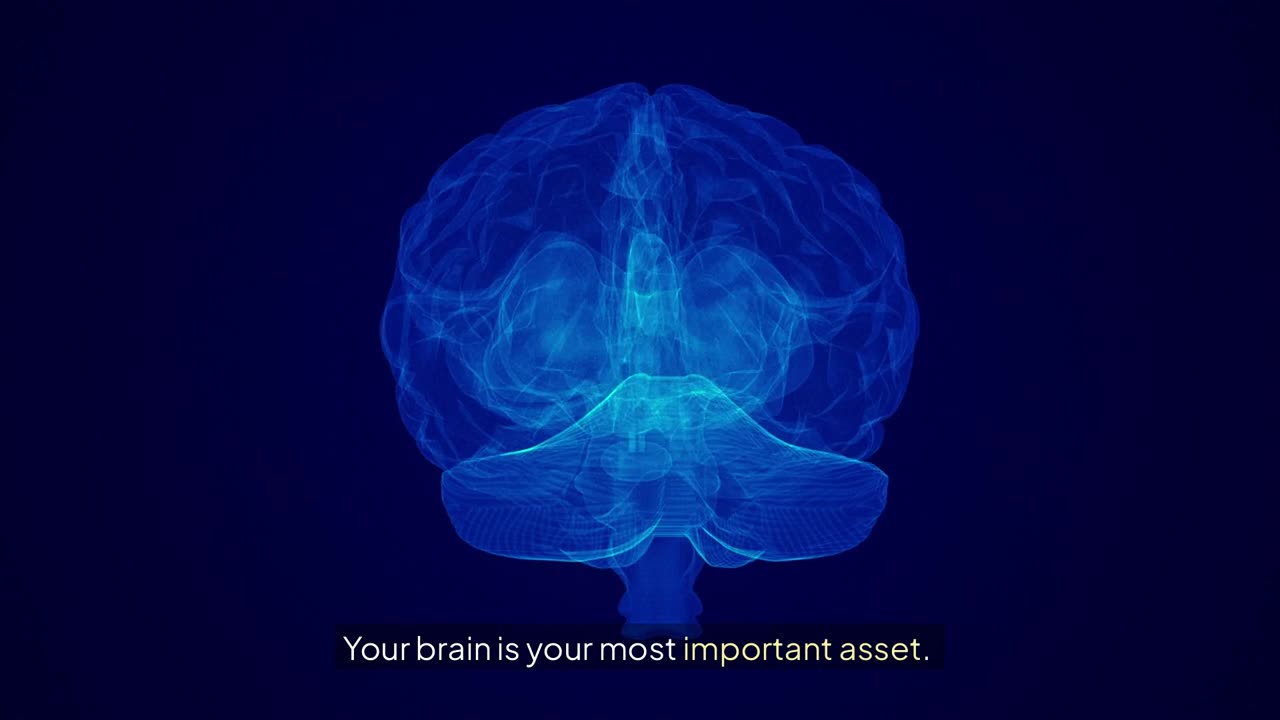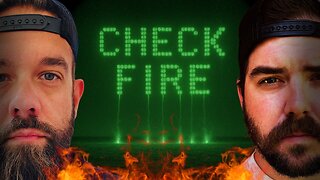Premium Only Content

A Game Changer? FDA Approves First Blood Test for Alzheimer’s Detection**
*What if one simple blood test could warn you of Alzheimer’s — years before symptoms take hold?*
---
## **INTRO: “A Pinprick Could Predict the Future of Your Brain” 🧠🩸**
For decades, the diagnosis of Alzheimer’s has been *complex*, *costly*, and often too **late**. By the time you notice the signs — confusion, memory loss, forgetfulness — the disease has already taken root.
But now, something huge just happened.
🚨 The **FDA has cleared the first-ever blood test** designed to help diagnose Alzheimer’s disease — without needing invasive spinal taps or expensive brain scans.
That could mean:
* **Faster detection**
* **Earlier intervention**
* And for many, **more time**
But how accurate is it? Who should get it? And is this the future of Alzheimer’s care — or just another headline?
Let’s break it down.
---
## **CHAPTER 1: “Why This Blood Test Matters — And Why It’s a Big Deal” 🧪**
**Hook:** *For years, Alzheimer's detection was limited to high-tech machines or painful procedures. Now, it’s a vial of blood.*
Alzheimer’s disease affects more than **7 million Americans** over age 65 — and that number is only rising. Early detection is critical because that’s when treatments are most likely to slow the progression.
Until now, confirming Alzheimer’s involved:
* **PET scans** to detect amyloid plaques in the brain
* Or **spinal taps** to analyze cerebrospinal fluid
Both are expensive. Spinal taps can be **invasive** and **uncomfortable**. And PET scans? They're not available in every hospital.
Now, Fujirebio’s newly FDA-cleared blood test aims to **change that**.
The test identifies **amyloid beta proteins** — the hallmark of Alzheimer’s — through a simple blood draw. That makes it:
* Less risky
* More accessible
* And significantly cheaper
In a clinical trial of nearly 500 patients:
✅ **Over 90%** of positive blood results matched PET scan findings
❌ Less than 20% had inconclusive results
This means physicians could **screen patients earlier** — right from their office — potentially long before serious symptoms show up.
---
## **CHAPTER 2: “What This Test Can — And Can’t — Tell You” ⚖️**
**Hook:** *It’s powerful. But don’t mistake it for a crystal ball.*
As promising as it is, the FDA emphasizes that this test **should not stand alone**. It's not meant to **confirm a diagnosis by itself**, but to be **used alongside other assessments**, including:
* Cognitive exams
* Imaging
* Medical history
So what’s the risk?
The **main concern** is **false positives** or **false negatives**. A false positive could create unnecessary panic. A false negative? It might give false reassurance.
This is why the FDA urges:
> “Use this test as part of a broader diagnostic approach.”
In other words, it’s a **tool**, not a verdict.
Still, for millions of seniors — especially those showing early signs — it could **jumpstart conversations** and **open the door to treatment options** much earlier.
---
## **CHAPTER 3: “The High Cost of Late Diagnosis” 💸⏳**
**Hook:** *Alzheimer’s doesn’t wait — but our healthcare system often does.*
Why is earlier detection such a big deal?
Because **timing matters** in Alzheimer’s.
Most patients aren’t diagnosed until **moderate symptoms** have set in. By then, brain function has already declined. But today’s newest drugs — like *lecanemab* and *donanemab* — show the most benefit **early in the disease**.
Without early detection:
* **Patients miss treatment windows**
* **Families have less time to plan care**
* And **research loses opportunities** for trials and data
Not to mention — late-stage Alzheimer’s is extremely expensive. It’s one of the **most costly diseases in America**, with unpaid caregiving reaching over **\$300 billion annually**.
🧠 A simple blood test could shift the timeline from **reactive** to **proactive**, and that changes everything.
---
## **CHAPTER 4: “The Bigger Problem: Alzheimer’s Is Growing, But Funding Isn’t” 🧬💰**
**Hook:** *What good is a breakthrough if research budgets are being slashed?*
According to the latest Alzheimer’s Association report:
* Over **7 million Americans** over 65 are living with Alzheimer’s
* **California alone** accounts for more than **720,000 cases**
* And **San Diego County** ranks high due to advanced diagnosing systems
But here’s the problem:
🎓 **Federal funding for Alzheimer’s research is at risk.**
Despite surging numbers, the **budgets for clinical trials and lab studies may be cut**, threatening research centers like the one at **UC San Diego**, which leads the nation in NIH neuroscience funding.
Jim Brewer, director of UCSD’s Alzheimer’s Research Center, says these cuts would:
> “Absolutely cut the knees out from under promising trials.”
With more diagnoses expected as blood tests become common, we **need more research**, not less — especially to understand:
* Why Alzheimer’s disproportionately affects women
* How genetics, sleep, and lifestyle play a role
* And whether blood-based tools can predict other forms of dementia
This is a pivotal moment. Progress is happening. But without funding, innovation stalls.
---
## **CHAPTER 5: “Could You Be at Risk — and What Can You Do About It?” ⚠️🧩**
**Hook:** *You might not feel the symptoms yet… but your brain could be telling a different story.*
Most people don’t think about Alzheimer’s until symptoms hit. But here’s what to watch for early:
### ⚠️ Warning Signs:
* Struggling to find the right word
* Misplacing things often
* Trouble judging distances
* Difficulty planning or solving problems
High-risk factors include:
* Age (65+)
* Family history
* Cardiovascular disease
* Sedentary lifestyle
* Lack of mental stimulation
### ✅ Brain Health Tips:
* Stay social — conversations help keep memory sharp
* Keep learning — try puzzles, new languages, or skills
* Don’t skip sleep — your brain needs it to clear waste
* Get moving — even light exercise improves blood flow to the brain
And if you're in a high-risk category, this **new blood test** could give you and your doctor a **vital head start**.
---
## **OUTRO: “This Test Could Change Lives — But Only If We Use It Wisely” 🔬❤️**
This is a **historic moment** in Alzheimer’s research. A simple blood test could **change how we detect and treat** one of the world’s most devastating diseases.
But remember:
* It’s **not perfect**
* It’s **not a diagnosis**
* And it’s **not a replacement for full medical evaluation**
Still, for families navigating memory loss, this might be the **first step toward clarity, care, and control**.
🧠 **So what do you think? Would you take the Alzheimer’s blood test — even with no symptoms?**
💬 Drop your thoughts in the comments below!
And if you found this breakdown helpful…
👍 **LIKE this video**
🔔 **SUBSCRIBE to the channel** for more on medical breakthroughs, brain health, and science news that matters
📤 **SHARE this video** with someone who might be at risk or needs to know what’s coming
Your brain is your most important asset. Let’s protect it — together.
---
-
 UPCOMING
UPCOMING
Adam Does Movies
2 days agoTalking Movies + Ask Me Anything - LIVE
258 -
 UPCOMING
UPCOMING
I_Came_With_Fire_Podcast
10 hours agoNASA Blocks China, TPUSA BOOSTED, Chinese Spamoflauge, & Factional Division
4023 -
 33:40
33:40
Jamie Kennedy
2 hours agoEp 222 Processing the Loss of Charlie Kirk | HTBITY with Jamie Kennedy
4.12K4 -
 LIVE
LIVE
Badlands Media
17 hours agoAltered State S3 Ep. 46
1,728 watching -
 9:18
9:18
ARFCOM News
7 hours ago $0.29 earnedNSSF "Celebrates" ATF Partnership | Glocks BANNED | Redundant Spooky Boi Ban
3.57K4 -
 LIVE
LIVE
LFA TV
15 hours agoLFA TV ALL DAY STREAM - WEDNESDAY 9/17/25
793 watching -
 1:00:00
1:00:00
BEK TV
23 hours agoAPRIL LUND: FAITH, FOCUS, AND THE ROAD TO THE 2028 OLYMPIC MARATHON
3.52K -
 37:15
37:15
Stephen Gardner
2 hours ago🔥Trump ERUPTS After Obama’s Charlie Kirk Comments!
12.5K38 -
 LIVE
LIVE
Total Horse Channel
13 hours ago2025 WDAA Western Dressage World Championship Show | Day Two | Arena One
137 watching -
 1:14:40
1:14:40
Glenn Greenwald
3 hours agoThe Right Wages Its Own Cancel Culture War: Lee Fang, Thomas Chatterton Williams, and Leighton Woodhouse on the State of Civil Discourse and More | SYSTEM UPDATE #517
154K49